- ALL SERVICES
- • Salesforce Consulting Services
- • Managed Services
- • Simplification of Interfaces
- • Data Migration and Processing
- • Architectural Solutions and Scoping
- • Code Review, QA and Support
- • Applications Development
- • Pre-sales and Solutions Consulting
- • Technical Audit and Support
- • Custom Applications Development
- • AI Apps
BLOG
Salesforce Email and Events Integration Options: Deep Dive Into the Pros and Cons
• Date: August 2023 •
Estimated reading time: 7 minutes
Estimated reading time: 7 minutes
Subscribe for more useful content
We promise we'll not spam your mailbox!
By submitting you agree to receive a newsletter from Twistellar. You can unsubscribe anytime.
In the ever-evolving digital business landscape, a robust CRM platform like Salesforce becomes even more powerful when it can seamlessly integrate with your organization's email and event management systems.
At Twistellar, we have extensive experience with these integrations and understand their importance firsthand. By automatically syncing emails and events with relevant Salesforce records, manual data entry is reduced, and no communication or event slips through the cracks. It also provides a more comprehensive view of customer interactions, thereby facilitating more personalized customer engagement and improved decision-making.
However, with so many options available for this integration, making the right choice can be challenging. This article takes a detailed look at four primary methods: Einstein Activity Capture (EAC), custom API-based integration, package-based solutions, and the Salesforce Chrome extension.
Let's examine their features, pros, cons, stability, and reliability, providing a comprehensive guide to help inform your decision-making process.
Contents:
Einstein Activity Capture (EAC)
Einstein Activity Capture, a built-in feature of Salesforce, offers seamless integration of emails and events. It automatically captures and associates these activities with relevant Salesforce records, fostering a streamlined workflow and reducing manual data entry.
- Features. EAC uses artificial intelligence to accurately link emails and events with appropriate records. It also offers insights and analytics on communication trends, helping to inform business strategies.

Einstein Activity Capture (EAC)
- Pros. The automation EAC offers in terms of data capturing is its main benefit. It saves sales reps time and reduces human error in data entry. The AI-driven insights can also be a game-changer for strategy formulation.
- Cons. EAC's main downside is its limited customization options and lack of comprehensive reporting capabilities. Emails, contacts and calendar events are automatically added to the activity timeline of related Salesforce records, but are only stored for a limited time.
As the data is not stored in Salesforce, EAC doesn't allow for building comprehensive reports on its data,This limitation makes it impossible to build automations based on emails and activities appearing there.
- Stability and Reliability. As a Salesforce-native feature, EAC offers robust stability and reliability. However, issues may arise during Salesforce's periodic updates.
- Best for: Organizations looking for an AI-powered solution for syncing emails and events in Salesforce, provided they are comfortable with Salesforce's data handling practices.
Custom API-based Integration
Custom API-based integration involves using middleware to connect Salesforce with your preferred email system, such as Google's G Suite or Microsoft's Office 365. This method offers more flexibility and control over syncing.
- Features. The main feature of this approach is its high level of customization. Through middleware, you can tailor the integration to fit your unique business needs.
- Pros. This provides complete control over data handling and storage. It also enables integration with other systems and services, creating a comprehensive data ecosystem.
- Cons. Custom API-based integration requires significant technical expertise to set up and maintain. Additionally, middleware usage can incur extra costs. It's the most sophisticated method from an engineering perspective, and requires some service support to keep the system alive and aligned with all the latest updates.
- Stability and Reliability. This depends largely on the middleware used and the quality of the integration's implementation. With proper setup and maintenance, it can be highly stable and reliable.
- Best for. Businesses with specific needs not met by out-of-the-box solutions, and those with the resources to manage and maintain a custom integration.
Package-based Integration
Package-based solutions on AppExchange, such as "Email & Calendar Integration for Salesforce", offer pre-built integrations for a monthly fee. They can assimilate Salesforce with various platforms and products like Gmail or Office465.

Package-Based Solutions on AppExchange
- Features. These packages provide a wide range of integrations and typically offer ongoing support and updates from the provider.
- Pros. Their main advantage is their ease of setup and use. The ongoing support and updates also ensure the integration remains up-to-date and effective.
- Cons. The monthly costs can add up, especially for large teams. Customization is also usually limited with these solutions. Moreover, they may interfere with the standard model and are not scalable, but they're easy to install if you don't have heavy customization in place.
- Stability and Reliability. Package-based solutions are generally stable and reliable, with the provider handling any issues or updates. This depends on the frequency of the package updates.
- Best for. Businesses seeking an easy-to-implement solution that covers various platforms, and are willing to pay for this convenience.
Chrome Extension
Salesforce's Chrome extension, formerly known as Lightning for Gmail, brings the Salesforce experience within G Suite Gmail. It offers basic Gmail integration features at no additional cost, with the option for premium features via an Inbox license.
- Features. Beyond basic integration features, the extension provides a seamless experience within Gmail. Premium features, available with an Inbox license, can enhance the integration.
- Pros. The extension is free for basic features and integrates seamlessly within Gmail. The option for advanced features adds flexibility.
- Cons. The extension is limited to the Chrome browser, advanced features require an extra purchase. Some companies, particularly large-scale ones, don't allow Chrome on workspaces, preferring specific products like Firefox, Edge, or even Internet Explorer.
- Stability and Reliability. As a Google Chrome extension, its stability and reliability largely depend on the browser's performance.
- Best for. Small businesses or teams using Gmail and Chrome, seeking basic integration features at no cost, with the option to purchase advanced features if needed.
- Best for. Small businesses or teams using Gmail and Chrome, seeking basic integration features at no cost, with the option to purchase advanced features if needed.
It's worth noting that Salesforce can also seamlessly integrate with Microsoft Outlook. It allows sales reps to seamlessly interact with Salesforce records directly within their email and calendar applications.
Key functionalities include viewing and interacting with Salesforce records from a side panel, manually linking emails, events, and contacts to Salesforce records, creating new Salesforce records, managing tasks, utilizing Salesforce templates to compose emails, and generating reports on activities.
Additionally, reps can easily log email conversations to relevant Salesforce records, ensuring that team members are kept informed and up-to-date on client communications. With Outlook or Gmail integration, alongside Einstein Activity Capture, sales representatives can significantly enhance productivity.
Comparison Summary
To help you compare these four options at a glance, here is a summary table:

Email & Event Salesforce Integration Options: Comparison Summary
To Wrap Up
In conclusion, the best email and event sync option for your organization will hinge on your unique needs, resources, and existing technology infrastructure. At Twistellar, we've worked with businesses across the spectrum and understand the strengths and limitations of each approach. By considering the features, pros, cons, stability, and reliability of each solution, you can make an informed decision to optimize your Salesforce experience.
Twistellar's team has carried out a number of industry-oriented projects and we are always open to discuss yours!
Our deep understanding of Salesforce platform ensures successful handling of projects in any domain
By submitting you agree to receive a newsletter from Twistellar. You can unsubscribe anytime.
Our Best Articles and Salesforce Overviews
Feeling like teaming up with us at Twistellar? We are excited too! Whether you'd like to customize your org, build a bespoke application or integrate a third-party tool, Twistellar is ready to help you.
Get in touch to discuss your Salesforce ideas!

